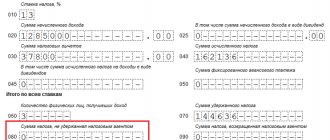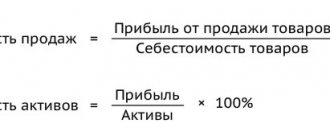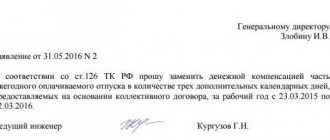2ann.ru
Legal answers to housing questions
Need free legal advice?
Moscow and Moscow region
8(499)110-74-89
Home › Taxes and duties
According to the current legislation for 2020, any cash bonus must be subject to income tax, because it is part of wages. However, in some cases it is possible to reduce the tax amount legally. How tax is withheld from bonus payments is described in detail in the material.
Expert opinion
Salomatov Sergey
Real estate expert
We advise you to read the instructions on how to correctly draw up an order for bonuses for an employee; see the details here.
Types of awards
The most common types of monetary rewards include:
- individual or collective incentives for completing assigned tasks and conscientiously fulfilling duties;
- rewards for exceeding plans and achieving high performance results;
- incentives for completing special tasks;
- payments when an employee reaches significant length of service;
- awards for special services;
- one-time bonuses on the occasion of an important event, for example, dedicated to professional or public holidays, the founding date of an organization, or anniversaries of company employees.
There are different types of employee benefits
Depending on the internal rules of the organization and the decisions of management, employees may be paid several different types of bonuses at once. There are one-time incentives, as well as regular ones, which are awarded based on the results of a certain period. The bonus amount may be set at a certain amount, periodically revised over time, or may be a percentage of salary.
Attention! Moreover, such incentive payments are subject to mandatory tax established by law.
The essence of the concept and types of awards
A bonus is a payment to an employee in the form of additional money for special merits. In particular, for the excellent performance of their duties. Such payments are considered to be regular. In addition to the agreed conditions, the bonus is also based on a specific event (for example, a professional holiday).
The bonus must be paid to employees on the basis of the relevant provision enshrined in the company's regulations. Based on Art. 129 and art. 191 of the Labor Code of the Russian Federation, bonuses can be an incentive for:
- high labor achievements;
- special skill associated with the subject's specialty;
- length of service or high qualifications;
- proposal and assistance in the implementation of progressive ideas to improve the production process, etc.
Despite the broad theoretical basis, as well as the widespread practice of bonuses, many people wonder whether the bonus is subject to taxes and insurance premiums.
Sources of bonus payments and grounds for their taxation
Unlike wages, cash bonuses are not mandatory payments. Such incentives are paid by decision of management in accordance with the internal rules of the organizations. In cases where regular bonus payments are provided for by a collective agreement or the company's charter, refusal to provide bonuses or a reduction in the amount of remuneration must be justified and formalized in the prescribed manner.
Most employers allocate incentive amounts as a separate part of the overall compensation system developed and approved by management for their employees. This makes it possible to interest and stimulate employees to generally improve the company’s performance, and also makes it possible to optimize income tax payments.
Bonus is an optional payment, which is made by decision of management, usually for certain merits of the employee
Sources of bonus amounts can be the cost part included in the company’s budget for salaries, wages for hired personnel, as well as the net profit of the enterprise. In the first case, bonuses are directly related to work activity and achievements at the end of a certain period.
Attention! Incentives from profits are usually allocated in connection with a certain event that is not directly related to the performance of functional duties or work results.
Regardless of whether monetary incentives are regular payments from the cost part of the budget or one-time rewards from profits, all these amounts relate to employee income, which is subject to mandatory taxation by law.
Bonuses are taxed as they are employee income
How is the premium taxed with personal income tax?
The statement that the bonus relates to the employee’s salary can be found in the Labor Code.
That is why the premium is subject to taxation. The corresponding confirmation can be found in the Tax Code.
This means that the employee receiving it actually accepts income, from which the employer must calculate and withhold 13% personal income tax. Along with this, the company also pays insurance premiums from the bonus, as well as from regular wages (salary, other payments). For example, at the end of the quarter, a bonus payment of 50,000 rubles was received. This means that 13% of this amount must be withheld as tax, i.e. 6500 rubles. The employee is left with 43,500 rubles.
The date of receipt of this income is the date the bonus is actually accrued to the employee when he receives the funds in hand. This date is important in the sense that it is what the employer focuses on when paying personal income tax:
- If the funds were issued in cash, then the tax is transferred no later than the same day.
- If the payment is received by regular bank transfer (to a salary card), then the tax is paid no later than the day the transfer is made.
- In the case where bonus funds are paid from the company’s revenue, the tax is paid no later than the next working day from the moment the employee received (should have received) the funds.
It is important to understand that bonuses can be paid for various reasons, including those not directly related to the employee’s work achievements, for example:
- for the anniversary date;
- on a professional holiday (including company day established by the employer himself);
- for the wedding;
- to the birth of a child;
- as a measure of material support.
However, tax legislation does not distinguish these cases into a separate category. Thus, personal income tax must be withheld from the bonus payment in any case (insurance contributions are also withheld from such payments, as from a “regular” salary).
Taxation of insurance premiums
The law defines labor relations as a special type of contractual obligations between employers and the employees they hire. The latter undertake to carry out certain activities within the framework of their position, profession, specialty and qualifications under the guidance of the employer and in his interests. Employees must obey the rules and regulations established within the organization. In turn, the organization hiring personnel is obliged to pay workers, create working conditions that comply with the norms and requirements of labor laws.
According to Article 129 of the Labor Code, all regular, one-time monetary rewards for work performed are part of the general system of remuneration for hired personnel, developed and approved by the management of the organization. In accordance with the Tax Code, which regulates the conditions, rules of contributions to the state Pension, Medical, Social Insurance Funds, payments related to the sphere of labor relations, in addition to various benefits and compensations, are subject to corresponding insurance contributions.
Attention! This rule also applies to incentives in the form of cash bonuses.
Article 129 of the Labor Code of the Russian Federation
The amount of insurance premiums is calculated in the same month when the reward is accrued. It does not depend on the duration of the work for which the remuneration is assigned. For example, in April, management decided to award a cash bonus to the work team for fulfilling the plan in the 1st quarter. It is in the same month that premiums will be subject to insurance fund charges, although the incentive is paid for work done in the previous three months.
Insurance contributions do not depend on the sources of incentive amounts - the salary part of the budget or the company’s net profit, with the exception of certain cases of one-time awards.
Attention! It also does not matter whether bonus payments are provided for by collective agreements and internal rules of enterprises.
Bonuses can be paid from the salary part of the budget, the net profit of the enterprise
What does the law of the Russian Federation say?
Issues related to the calculation of bonuses, calculations, as well as the collection of income taxes are indicated in a fairly large list of regulatory documents, and in particular, this applies to the following laws:
| Article 129 of the Labor Code | In this article, a bonus is considered as an incentive for an employee for any work achievements and is a form of additional material compensation provided in addition to the standard salary. |
| Article 144 of the Labor Code | Includes an indication that the bonus can act as a regular financial incentive for employees. Article 144. Remuneration systems for employees of state and municipal institutions |
| Article 191 of the Labor Code | Indicates the use of bonuses in the form of material incentives for employees for any work merits. Article 191. Incentives for work |
| Article 207 of the Tax Code | Describes a bonus in the form of additional profit of an individual subject to personal income tax. Article 207. Taxpayers |
| Article 217 of the Tax Code | Indicates that any bonus payments that company employees receive in Russia or abroad in the form of incentives for any technical or scientific achievements must be subject to personal income tax. |
Insurance-free incentives
There are types of one-time monetary awards that are not related to the direct performance of employees’ duties or success at work. They can be dedicated to professional or public holidays, the anniversary of the founding of the company, or dedicated to birthdays and anniversaries of employees. The amounts of such remuneration are usually the same for all team members, regardless of positions, duties performed, length of service, salary, or success in work. Even when these remunerations are provided for, specified in the collective agreement, the charter of the organization and called bonuses in the order, in fact they are not included in the framework of labor relations. Accordingly, insurance contributions are not deducted from such payments.
Often, tax inspectors raise claims against employers regarding the imposition of insurance contributions on one-time premiums dedicated to important dates. This is motivated by the fact that absolutely all amounts paid to hired personnel relate to the sphere of labor relations. However, according to the decision of the Arbitration Court of the North-Western District, if such incentives are paid from net profit, distributed among team members in equal shares, they are not payment for work and insurance fees should not be withheld from them.
Attention! If employees receive bonuses for a special date in different amounts, the court will consider them a reward for the performance of duties and will oblige them to accrue contributions to insurance funds.
It all depends on the type of premiums - some are still not taxed
One-time incentive payments issued as cash gifts to employees under gift agreements concluded with them should not be taxed. Article 420 of the Tax Code defines such actions as acts of civil relations that are not subject to insurance fees.
Thus, contributions to the state Insurance Funds must be withheld from almost all types of premiums. The exception is one-time incentives for important dates or events, allocated from the net profit of companies, issued to employees in equal amounts, as well as bonus amounts issued as monetary gifts under gift agreements.
If bonuses are given to employees in equal amounts and this occurs in connection with important events, they should not be taxed
When personal income tax deduction can be avoided
Despite the information discussed above, there are still situations when personal income tax is not deducted from bonus accruals. In this case, one should be guided by paragraph 28 of Article 217 of the Tax Code of the country. It is stated here: bonus remuneration totaling up to 4,000 rubles for one year is not subject to taxation , just like winnings or gifts.
28 paragraph 217 of the Tax Code of the Russian Federation
In order not to deduct tax, several conditions must be met:
- time the accrual of bonuses to a significant date;
- conclude a gift agreement under clause 2 of Art. 574 Civil Code of the Russian Federation. It must be in writing.
Clause 2 art. 574 Civil Code of the Russian Federation
Income tax
The main type of tax in Russia is the collection on personal income – personal income tax. It is also called income tax. At the same time, individuals include Russian and foreign citizens living in Russia, regardless of gender and age. Profits received by individuals as a result of activities carried out on the territory of the Russian Federation are subject to personal income tax.
Attention! To determine tax payer status and tax rates, citizenship is not the main factor. The fees depend on whether the resident is an individual or not.
The following citizens are tax residents:
- over the past 12 months, living in the Russian Federation for at least 183 calendar days;
- military personnel serving abroad, regardless of length of stay in the Russian Federation;
- civil servants who are on a business trip abroad, regardless of its duration.
Tax resident – not necessarily a citizen of the Russian Federation
There are types of income of citizens that are not subject to personal income tax. Non-taxable income tax payments include the following:
- various benefits, for example, unemployment, in connection with pregnancy, childbirth, child care;
- compensation payments due for unused vacation or upon dismissal from employment;
- pension accruals;
- student and scientific scholarships;
- additional payments for donation;
- monetary awards for high achievements and special merits in science;
- various grants;
- social additional payments, financial assistance;
- compensation for losses resulting from natural disasters and emergency situations;
- various types of alimony;
- rewards for assistance in solving crimes, preventing terrorist acts, and capturing dangerous criminals.
Pensions, various benefits, scholarships, additional payments, etc. are subject to personal income tax.
Attention! Also, funds allocated for charitable activities are not subject to income tax.
Types of bonuses
Premium payments can be periodic (monthly) or one-time.
Info
But there are payments, the grounds for which are listed in paragraph 28 of Art. 217 Tax Code of the Russian Federation. Moreover, if such a payment does not exceed 4,000 rubles, then it is not subject to personal income tax.
These include bonuses: they must be strictly timed to coincide with some significant event and amount to no more than 4,000 rubles per year. per employee. In this case, a mandatory rule must be observed: a gift agreement is drawn up in writing (clause 2 of Article 574 of the Civil Code of the Russian Federation), then a payment under it in the amount of 4,000 rubles. for the year can be carried out as income not subject to personal income tax.
Is financial assistance subject to personal income tax? Find out from this
articles.
➤
Five questions about the annual bonus: answers you'll need in December
For those employees who stay in Russia for a short time and have not acquired tax resident status, there is a special tax rate of 30 percent (clause 3 of Article 224 of the Tax Code of the Russian Federation). But an exception has been made for certain categories of employees; their salaries are subject to personal income tax at a rate of 13 percent, regardless of tax residence.
The exception applies to:
– foreigners who work in Russian organizations on the basis of a patent;
– highly qualified specialists
.
The premium is also subject to insurance premiums.
Let us remind you that it is part of the salary and is paid by virtue of employment contracts and local acts of the organization. Therefore, it is subject to insurance premiums according to the general rules (clause 1 of Art.
This is the tax rate that applies to the wages of tax resident employees. Most Russian citizens and foreign workers who work for a long time in the Russian Federation are tax residents.
Reference
Tax residency does not depend on the citizenship of the employee, but on the duration of his stay in Russia.
Tax residents are all individuals who stay on the territory of the Russian Federation for 183 days over the next twelve consecutive months (Clause 2 of Article 207 of the Tax Code of the Russian Federation).
It is important to note here that to determine the number of days spent in Russia, it is not the calendar year that is taken into account, but rather consecutive 12 months.
Is personal income tax withheld from a bonus? Procedure for paying personal income tax on a bonus in 2020: how is the tax calculated, taken and deductedPayment of personal income tax on a bonus in 2020: what is the income code “personal income tax bonus” Salary bonus: when to pay personal income tax and deadlines for 2020Results Withheld Is there personal income tax on bonuses?
There is a clearly regulated list containing cases when income tax is not deducted from the premium (clause 7
Art. 217 of the Tax Code of the Russian Federation), for example, for outstanding discoveries in the field of science, education, culture, etc. This list is approved by the Government of the Russian Federation. In other cases, the question is whether the bonus is subject to personal income tax under clause.
1 tbsp. 210 of the Tax Code of the Russian Federation, it is not worth it, since almost any income of an individual is subject to taxation.
The article will tell you whether personal income tax is withheld from those on maternity leave.
“Are maternity workers subject to income tax (NDFL)?” Whether taxes are paid on bonuses to employees depends on the nature of the accrual.
Tax rates
Russian tax legislation provides for various types of fees for both residents of the Russian Federation and non-residents. At the same time, the bet sizes also differ and depend on the type of income. The most common value used to calculate taxes for residents is 13% of the amount of income received from the sale of property or in the form of wages. The same rate is applied when withholding income tax on the amount of regular bonuses allocated from the cost part of the organization’s finances, as well as one-time payments from profits dedicated to an important date or special event.
Attention! The type of source of bonus funds does not matter; all cash incentives are subject to an income tax of 13%.
As a rule, personal income tax on income is 13%
For non-residents, 13% is calculated from the following income:
- profits received in the Russian Federation by citizens of other states;
- wages of foreign citizens working in the Russian Federation on the basis of patents;
- income of non-residents who move to the Russian Federation under a program promoting the voluntary resettlement of compatriots;
- income of stateless persons, as well as foreign citizens who have received asylum in the Russian Federation;
- salaries and remunerations of crew members of Russian ships who have citizenship of other states.
There are other rates that are deducted from different types of income. For example, 9% is charged on profits received from bonds, 15% on dividends transferred to individuals from organizations.
Attention! Non-residents must pay 30% of the amount received from the sale of securities to a Russian company.
Some income is subject to different tax percentages
How does it differ depending on the date?
As already indicated, taxation of a premium is a rather complex procedure that includes a fairly large number of nuances, and in particular, this concerns the exact code in which it is calculated.
In addition, the transfer of gifts requires the calculation of value added tax if the company operates on the general taxation system.
AnniversaryAnniversary bonuses may not be subject to income taxes if they are within 150 basic units. But at the same time, it is worth paying attention to one rather important condition: if a bonus accrued for any anniversary date simultaneously represents a payment for the performance of job duties, then in this case it should be subject to income taxes, like any other type of bonus, received for performing existing job duties. Victory in the competitionIn accordance with tax legislation, bonuses received in the form of winning competitions cannot be subject to any taxes. It is worth noting the fact that in Russia, prize-winners and winners of any competitions are exempt from payments, including not only the Olympic Games, but also all kinds of Paralympic Games, chess competitions, as well as all kinds of world championships and cups.An example of calculation and registration of income tax on bonus payments
Let's consider, using a specific example, all aspects of paying income tax on the bonus amount - calculation, registration procedure with subsequent withholding of personal income tax.
Sergey Tokarev worked for a long time at the manufacturing enterprise Elektropribor CJSC. Now he is retired. Due to his advanced age and health reasons, Tokarev is forced every year to undergo a medical examination and a course of treatment using expensive medications. Tokarev Andrey, his son, followed in his father’s footsteps and also became an employee of the Elektropribor enterprise. At the same time, he is one of its best employees.
At the end of the year, the director of JSC Elektropribor awarded Andrey Tokarev a bonus of 10 thousand rubles for quality work done and success in production activities. At the same time, the manager, at the expense of the enterprise, decided to compensate him for the funds spent on medicine by his father. According to the sales receipts provided by A. Tokarev, this amount is 3.5 thousand. Accordingly, the total amount of bonuses issued by the director of Elektropribor for Andrey Tokarev amounted to 13.5 thousand rubles.
The manager can, at his own discretion, issue a bonus to the employee
The accounting department of the organization was faced with the problem of how to correctly draw up bonuses in order to optimize and correctly calculate the amount of income tax. The accounting department did this:
- as a gift to Andrey Tokarev for the New Year holidays, 4 thousand rubles were drawn up from the net profit of the enterprise, and a corresponding agreement was concluded for the donation of this money;
- another 4 thousand rubles were issued in the form of financial assistance;
- 3.5 thousand were allocated to compensate for the cost of medications for Tokarev’s father;
- According to the official order, Andrey Tokarev was allocated 2 thousand rubles for an annual bonus for successful work.
The task of accountants is to correctly process such payments.
All bonus payments were approved by the relevant orders, signed by the director, executed and documented in the proper manner.
In accordance with the norms of labor and tax legislation, of all amounts paid to Tokarev, only the annual bonus of 2 thousand rubles for labor success will be subject to income tax. All other payments, including financial assistance, reimbursement of the cost of medicines, holiday gifts in the form of cash, formalized by a gift agreement, are not subject to taxation.
So, 13% is deducted from 2 thousand. The income tax amount will be 260 rubles, which will be withheld from Tokarev’s annual bonus. Adding up all the other amounts, we get 13,240. This is the amount of bonuses Ivan Tokarev will receive at the end of the year. If the accounting department had issued 10 thousand rubles as a reward for successful work during the year, the income tax on this amount would have been 1300. In this case, Ivan Tokarev would have received 12200, which is 1040 rubles less.
Financial assistance is not subject to personal income tax
All bonus funds issued by the enterprise must be indicated in the 2-NDFL certificate, which is submitted to the tax authorities. Moreover, each type of payments and deductions is designated by special codes established by the Appendices to the orders of the Federal Tax Service. For example, a monetary gift corresponds to code 2720, material assistance – 2760, compensation for the cost of medicines – 2770, annual remuneration for labor achievements – 2000.
Separately, bonus amounts will be reflected in the 2-NDFL certificate in the application for deduction codes.
| Description | Code |
| Gift code in the form of cash under a gift agreement | 501 |
| Material assistance code | 503 |
| Medical reimbursement code | 504 |
Attention! It must be remembered that in order to exempt a premium from income tax, it must be formalized accordingly, confirmed by an order, agreement and other documents confirming that the payment relates to non-personal income tax items.
It must be confirmed that this or that payment relates to non-taxable personal income tax
How to legally avoid paying tax: 3 ways and a practical example
The tax on the bonus itself is paid in full, even if the employee belongs to preferential categories (mother of many children, disabled person of any group, etc.). However, in some cases, a payment to an employee may not legally be considered a bonus, but rather be defined as:
- Financial assistance in connection with difficult life circumstances in the life of an employee and his family.
- Compensation for the cost of medications for the employee or his family members.
- Receiving a valuable gift for a significant date.
Expert opinion
Salomatov Sergey
Real estate expert
EXAMPLE
A former employee of the company retired and is currently undergoing treatment for a chronic illness. His son works in the same company, constantly fulfills the plan and treats the performance of his duties exclusively in good faith. The director decides to reward the employee with a bonus of 30,000 rubles at the end of the year.
In this case, personal income tax can be calculated not from the entire amount, but only from its part, since:
- 4000 rubles can be considered as a valuable gift for the New Year. This amount can be divided into several parts - for example, gifts for a birthday, professional holiday, etc. But the total amount for 1 calendar year should not exceed 4000 rubles.
- Financial assistance can also reach a maximum of 4,000 rubles. The employer makes the decision to pay it voluntarily, depending on the specific circumstances that have occurred in the employee’s life.
- Finally, a certain part within the same amount (4000 rubles) can also be used to pay for medicines. If the drugs are expensive, then the entire amount above this limit is still subject to taxation.
Thus, the amount of 12,000 rubles is exempt from personal income tax, so it can only be withheld from the remaining portion. those. from 18,000 rubles, i.e. 2340 rub. Therefore, the employee receives 30,000-2,340 = 27,660 rubles. If we consider this entire amount as a bonus for labor achievements or payment for a significant date, then the personal income tax would be 13% of 30,000 rubles, i.e. 3900 rubles, and the employee would receive 26100 rubles.
A complete list of grounds for tax exemption is listed in the Tax Code (Article 217). It is indicated that for each item the maximum non-taxable amount is 4,000 rubles.
It is important to understand that in these cases the employer is actually gifting a certain amount to the employee. Therefore, it is necessary to draw up a gift agreement between the parties. This agreement is drawn up in any form and does not need to be notarized.
Expert opinion
Salomatov Sergey
Real estate expert
We previously talked about the rate and procedure for paying tax on winnings, we recommend that you read this information here.
Thus, bonus payments are always subject to income tax, even if they are unearned in nature. However, there are some cases where an employer may legitimately consider a cash payment to be a benefit or gift rather than a bonus. Then the tax is not paid within the above amounts.
Deadlines for paying income tax
The procedure and deadlines for transferring income tax to the state budget depend on the type of bonus. For example, if an incentive payment is tied to salary, the date of receipt of such income will be considered the last day of the month. The time of receipt of bonus funds that do not relate to labor compensation will be considered the actual date of payment.
Income tax must be withheld from the incentive amount on the day the issued money is issued to the employee. Personal income tax must be transferred to the state budget no later than the next day.
Attention! For each day of delay, a fine of 20% of the amount of unpaid income tax is assessed.
Personal income tax is withheld on the day the money is given to the employee
Unearned bonus: taxable or not?
It should be noted that disputes about which bonuses are not subject to taxes (personal income tax), including in arbitration courts, have not left the agenda until relatively recently. And for the tax authorities this was a real headache.
The fact is that bonuses can be of two types:
- for labor (see above);
- peri-work incentives.
The second category includes cash bonuses for:
- various anniversary dates (not only in relation to people, but also events);
- professional holidays (for example, Accountant's Day);
- date of foundation of the company, etc.
Today, in practice, the position has already been established as to whether income tax is deducted from bonuses not for the performance of one’s labor functions. Definitely yes! Insurance premiums also need to be calculated.
You will also have to take tax on the bonus issued based on the results of work upon dismissal of an employee. There are no exceptions in this regard in the law.
Benefits of taxation of bonus payments
According to the provisions of Articles 255, 272 of the Tax Code, all bonus payments that are paid to employees of the organization for the performance of labor duties are fully included in part of the cost of payment for work. Thanks to this, it is possible to reduce the total amount of company income tax that must be transferred to the state budget. It is advisable for organizations of the following type to use this advantage in the taxation of incentive compensation:
- companies that use a simplified tax system;
- enterprises that use a common taxation system.
To the amount of premium funds issued, organizations have the right to add all fees paid from these amounts to the Insurance Funds. Taking these contributions into account will also reduce your income tax payments.
Sometimes you can reduce your income taxes
To avoid claims from representatives of the tax service regarding tax reduction, all incentive payments to hired personnel should be carefully documented and executed accordingly. It is also advisable to include a detailed description of the provisions on the types, terms, and conditions of providing employee benefits in the internal regulations governing the company’s activities.
Attention! This will allow you to document all bonus payments as a costly part of the organization’s budget allocated to pay for the work of hired employees.
Incentive compensation clauses should be included in such documents.
- An employment agreement or contract concluded with an employee. The presence of a condition for accruing bonuses in such an agreement will allow their amount to be deducted from income tax when transferred to the budget.
- Collective agreement. This agreement must fix the possibility of providing collective and individual rewards for quality work done, labor achievements, and also indicate the amount of funds allocated for these purposes.
The collective agreement must indicate the possibility of providing individual remuneration
- A separate internal document should document the provisions on the conditions for bonus payments to employees of the organization. This local act, drawn up in accordance with all the rules and approved by the company’s management, must indicate in detail all aspects of the provision of bonuses to employees - types, conditions of remuneration, sources of payments, periods of formation and delivery, established amounts or percentage of salaries, the total amount of bonuses included in expenditure side of the budget.
All these regulations will make it possible to completely protect the enterprise from possible accusations by inspection inspectors of tax evasion and illegal reduction of taxation of the company’s profits. In the absence of mention of the terms of provision and the procedure for processing monetary rewards, the management of the enterprise will have to prove the labor orientation of such payments. Otherwise, inspectors recognize bonus amounts as unearned and unrelated to the company’s performance, which, in accordance with the decision of the Ministry of Finance, cannot lead to a reduction in income tax.
Reflection of bonuses in expenses
The company always records all its expenses, including in order to correctly pay income taxes. If the employer decides to issue a bonus, this also applies to the company's expenses, but not in all cases:
- If the bonus is related to the employee’s work achievements (fulfillment, exceeding the plan, conscientious work, active participation in new projects, etc.), then such costs can be recognized as expenses. Therefore, the payment of the premium in this case, as well as the payment of insurance premiums from it, is necessarily included in the employer’s expenses.
- If the payment is not directly related to labor merit (an anniversary, another important date), then it cannot be taken into account in the company’s expenses. The corresponding justification is given in the Letter of the Ministry of Finance of the Russian Federation.
The best option from the point of view of preventing claims from inspection bodies is a clear organization of the process of paying bonuses. To do this, you can draw up appropriate regulations on bonuses, where you can specify the grounds, amounts and procedure for their payment. The same points can be reflected in an individual and/or collective employment contract.
Benefit for income tax
We found out whether taxes are paid on the premium and which ones. Now about the pleasant side of the issue.
The Tax Code, on the basis of paragraph 2 of Article 255 and paragraph 4 of Article 272, allows all amounts of bonuses issued to employees for labor achievements to be attributed to labor costs. And at 100% size. And such expenses ultimately reduce the income tax payable to the budget. This approach is available to individuals:
- on the general tax system;
- “for simplified people” with an object of income minus expenses.
Moreover, insurance premiums that are calculated on premiums also minus income tax along with personal income tax.
Bonuses, when there is no longer a question of whether the bonus is taxable, require careful documentation. This will allow you to remove unnecessary claims from income tax inspectors.
Ideally, the rules for issuing bonuses should be spelled out in detail in:
- labor contract;
- collective agreement;
- regulations on bonuses for personnel.
And it’s best when the contracts contain a reference to the clause on bonuses. By doing this, you will, as it were, tie bonuses to the remuneration system in the organization. It is better to make this application detailed. Even to the point of specifying in it the grounds and amounts for issuing bonuses. If this is left to the management’s orders, then it is possible that the tax authorities will have to explain the production nature of the bonuses paid.
The Ministry of Finance believes that non-labor and semi-labor bonuses do not reduce income tax! Since they have no connection with labor results (letter dated 07/09/2014 No. 03-03-06/1/33167).
In income documents
Article 136 of the Labor Code obliges the employer to provide, among other things, the amount of bonuses paid to the employee in the form of the pay slip developed by him.
If you find an error, please select a piece of text and press Ctrl+Enter.
Bonuses in the company are made to encourage employees. Such remunerations relate to the employee’s income, therefore, according to tax law, it is necessary to pay personal income tax on the bonus. In 2020, the procedure for calculating and paying income tax has changed. Accountants need to take these changes into account to avoid penalties.










